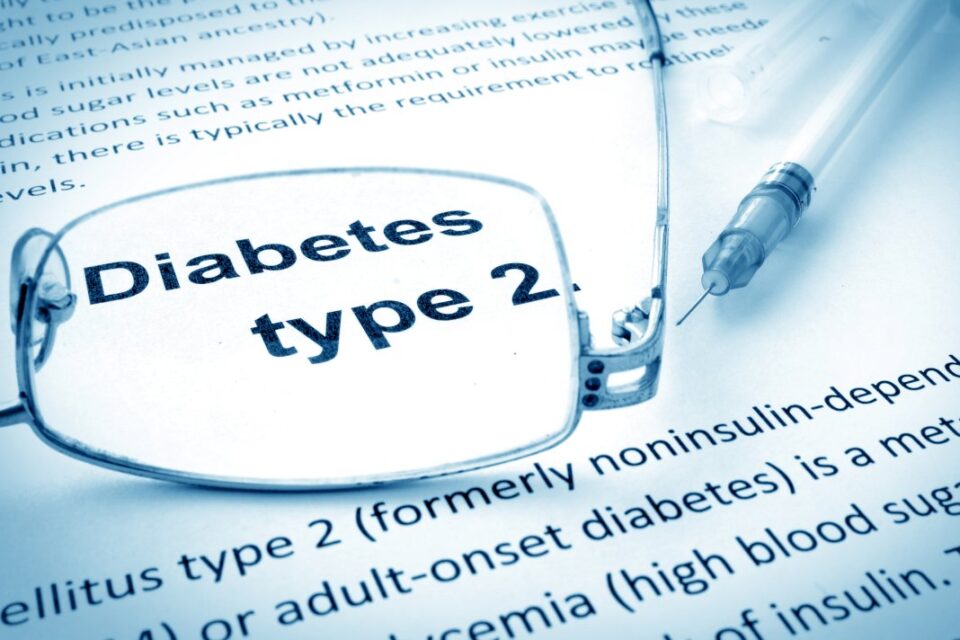- Regular monitoring of blood sugar levels is crucial in managing end-stage diabetes and mitigating severe health complications.
- Lifestyle adjustments, including maintaining a balanced diet, regular medical check-ups, effective medication management, and consistent exercise, significantly contribute to managing the disease.
- Regular doctor visits allow blood sugar control evaluation, potential complication monitoring, and timely treatment adjustments.
- Appropriate medication management is vital for controlling end-stage diabetes, taking prescribed medications, and maintaining open communication with healthcare professionals.
When caring for a loved one with end-stage diabetes, there are several key points you need to consider. Monitoring their blood sugar levels regularly ensures their diet is balanced and suitable. Read on to learn more.

Regularly Monitor Blood Sugar Levels
Regular monitoring of blood sugar levels is essential in managing end-stage diabetes. High blood glucose levels can lead to many health complications, including kidney failure, heart disease, and stroke. Thus, maintaining an accurate sugar level record can help adjust the treatment plan as necessary, mitigating the risk of such severe complications.
This can be done through finger-prick tests, continuous glucose monitors, or regular medical check-ups. It’s important to understand that blood sugar levels can fluctuate widely throughout the day, influenced by diet, physical activity, stress, and medication.
Therefore, frequent monitoring allows for timely interventions, such as administering insulin or adjusting food intake, to keep blood sugar levels within a healthy range. Regular glucose monitoring also provides valuable information to healthcare providers, facilitating timely adjustments in the treatment regimen.
Improve Lifestyle
Adapting lifestyle habits can significantly contribute to managing end-stage diabetes, including diet, exercise, and stress management strategies. Here are some tips:
Maintain a Balanced Diet
A balanced diet plays an essential role in managing end-stage diabetes. The goal should be to consume various nutrient-dense foods in appropriate portions, ensuring the right balance of protein, fiber, carbohydrates, and healthy fats. Lean meats, whole grains, fruits, vegetables, and dairy products are excellent choices.
It’s crucial to limit the intake of processed foods, high-sugar snacks, and beverages to avoid blood sugar spikes. Be mindful of the carbohydrate content in meals, as carbohydrates break down into glucose, affecting blood sugar levels. Also, it’s advisable to maintain regular meal times to prevent blood sugar fluctuations.
Incorporate high-fiber foods into the diet as they slow down glucose absorption, reducing the risk of blood sugar spikes. Involving a dietitian in planning meals can be beneficial, as they can provide personalized advice based on the individual’s health status, food preferences, and lifestyle.
Regular Doctor Visits
Regular medical check-ups are key in managing end-stage diabetes. These visits provide an opportunity to evaluate the patient’s blood sugar control, assess the effectiveness of the current treatment plan, and make necessary adjustments. Furthermore, healthcare professionals can monitor for potential complications such as neuropathy, retinopathy, or cardiovascular disease, common in individuals with prolonged, uncontrolled diabetes.
Regular appointments also allow for routine tests like A1C, cholesterol, kidney function, and eye exams, comprehensively analyzing the patient’s overall health status. The patient must maintain open communication with their healthcare provider, discussing any changes in symptoms, concerns, or difficulties in managing their diabetes.
A team approach, involving doctors, nurses, dietitians, and other healthcare professionals, can provide the necessary support to manage end-stage diabetes effectively. Regular doctor visits are not just about intervention but an opportunity for education, empowerment, and reassurance.
Medication Management
Appropriate management of medication is critical in controlling end-stage diabetes. Typically, insulin therapy is required, with the specifics varying based on individual health conditions. Besides insulin, other medications such as metformin or GLP-1 receptor agonists may be prescribed. It’s essential to take the medications as the healthcare provider directs-never skip doses, even if blood glucose levels seem stable.
Note the timing of medication and meals and be aware of possible side effects. Also, remember that medication management includes not just prescription drugs but any over-the-counter medicines, supplements, or herbal remedies, as these could affect blood sugar levels.
Continuous dialogue with healthcare providers regarding any concerns or side effects from the medication is crucial. Lastly, ensure a consistent supply of medication to avoid any disruption in the treatment plan. Effective medication management can significantly improve the quality of life for those with end-stage diabetes.
Exercise
Regular physical activity is a crucial aspect of diabetes management. Exercise helps to maintain a healthy weight, reduce blood pressure, strengthen the cardiovascular system, and, most importantly, aids in regulating blood glucose levels. Low-impact exercises such as walking, swimming, or cycling are excellent choices as they can be easily incorporated into daily routines.
Strength training exercises can also help build lean muscle mass, improving insulin sensitivity. Aiming for at least 150 minutes of moderate-intensity weekly exercise, spread over several days, is recommended.
However, monitoring blood sugar levels before and after exercise is important, as physical activity can cause blood sugar to drop. Adjustments to food intake or medication may be needed to prevent hypoglycemia. Always consult with a healthcare provider before starting any new exercise regimen.
Consider Hospice Care Services at Home
Considering hospice care services at home can benefit those with end-stage diabetes. This kind of care focuses on providing comprehensive support to ensure the highest quality of life possible, managing symptoms, and providing emotional and spiritual guidance to the patient and their family.
A team of professional healthcare providers, including doctors, nurses, and social workers, tailor a care plan to suit the individual’s specific needs and preferences. Hospice care also offers much-needed respite for family caregivers, allowing them to rest and recharge.
It’s important to remember opting for hospice does not mean giving up; instead, it’s about embracing a form of treatment that concentrates on comfort and dignity. Open communication about end-of-life care preferences is critical, and considering hospice care can be part of that important conversation.
In conclusion, end-stage diabetes involves comprehensive care-regular blood sugar monitoring, balanced meals, medical check-ups, medication management, and regular exercise. With the right support, you can effectively manage this condition. Don’t hesitate; implement these strategies today and make a positive difference in your loved one’s life.

